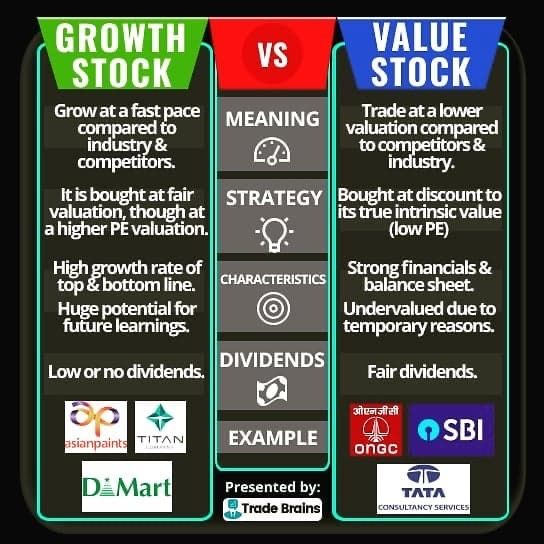
One of the most fundamental concepts in how to manage money is budgeting. To become debt-free, you can set a budget, automate your spending, and set long-term savings targets. Budgeting also provides a basis for setting priorities and circumstances. A crisis can force you to create an emergency fund. This will prevent you from getting into debt and help you get on the right path to financial recovery. You can also create an emergency fund by setting aside a set amount every month.
Setting financial goals

It is crucial to set financial goals for managing your money. The goal is a precise amount you desire to attain by a specified date. These goals should be aligned with long-term plans. Because they are unlikely to motivate you, it is important to have specific goals. A specific goal will help you to stick to your money management goals.
Budgeting
There are different budgeting strategies that you can use. They vary according to your age and personal needs, but they all work to organize your spending habits, savings, and goals. Knowing where your money is going each monthly is key to successful budgeting. There are three main categories: current expenses and long-term expenses. The third is discretionary spending. It is important to know where each category falls. You can then build a budget around each category once you have it identified.
Automating
Automating your finances can save you time while keeping your finances in line. Automated payments are a great way to save time and not have your accounts balances checked every day. You won't be worried about missed payments or paying late fees if your budget is in place. Automating your finances can ensure that your money is going to work for you instead of sitting in a savings account or emergency fund.
Having an emergency fund

You must save for an emergency in order to manage your money. It will keep you on track and prevent you from missing your paychecks. It is crucial to set a goal for building an emergency fund. You can save money every month and build your emergency fund over time by setting up an automated savings plan. You can use some of the money you save to invest in an emergency fund to make it even bigger.
An online net worth tracker
You can keep track of your assets with a net worth tracker. A positive networth is when your assets are greater that your liabilities. Contrary to this, a negative networth is created by student loans and credit cards. Your net worth will increase as you get older. You can track your assets with tools, so you can make wise investments. You can build a positive net wealth by monitoring your spending and ensuring that your assets are increasing.
FAQ
Why are marketable securities Important?
An investment company's primary purpose is to earn income from investments. It does this by investing its assets in various types of financial instruments such as stocks, bonds, and other securities. These securities are attractive because they have certain attributes that make them appealing to investors. These securities may be considered safe as they are backed fully by the faith and credit of their issuer. They pay dividends, interest or both and offer growth potential and/or tax advantages.
What security is considered "marketable" is the most important characteristic. This refers to the ease with which the security is traded on the stock market. If securities are not marketable, they cannot be purchased or sold without a broker.
Marketable securities include common stocks, preferred stocks, common stock, convertible debentures and unit trusts.
These securities can be invested by investment firms because they are more profitable than those that they invest in equities or shares.
How do you invest in the stock exchange?
Brokers allow you to buy or sell securities. A broker buys or sells securities for you. You pay brokerage commissions when you trade securities.
Banks typically charge higher fees for brokers. Because they don't make money selling securities, banks often offer higher rates.
To invest in stocks, an account must be opened at a bank/broker.
If you are using a broker to help you buy and sell securities, he will give you an estimate of how much it would cost. He will calculate this fee based on the size of each transaction.
Your broker should be able to answer these questions:
-
You must deposit a minimum amount to begin trading
-
Are there any additional charges for closing your position before expiration?
-
What happens if your loss exceeds $5,000 in one day?
-
How many days can you maintain positions without paying taxes
-
What you can borrow from your portfolio
-
How you can transfer funds from one account to another
-
how long it takes to settle transactions
-
The best way buy or sell securities
-
how to avoid fraud
-
How to get help for those who need it
-
Whether you can trade at any time
-
How to report trades to government
-
whether you need to file reports with the SEC
-
How important it is to keep track of transactions
-
Whether you are required by the SEC to register
-
What is registration?
-
How does it impact me?
-
Who needs to be registered?
-
What time do I need register?
What is the role of the Securities and Exchange Commission?
SEC regulates brokerage-dealers, securities exchanges, investment firms, and any other entities involved with the distribution of securities. It also enforces federal securities law.
How are share prices set?
Investors are seeking a return of their investment and set the share prices. They want to make a profit from the company. So they buy shares at a certain price. If the share price goes up, then the investor makes more profit. If the share price goes down, the investor will lose money.
The main aim of an investor is to make as much money as possible. They invest in companies to achieve this goal. This allows them to make a lot of money.
Statistics
- Individuals with very limited financial experience are either terrified by horror stories of average investors losing 50% of their portfolio value or are beguiled by "hot tips" that bear the promise of huge rewards but seldom pay off. (investopedia.com)
- "If all of your money's in one stock, you could potentially lose 50% of it overnight," Moore says. (nerdwallet.com)
- The S&P 500 has grown about 10.5% per year since its establishment in the 1920s. (investopedia.com)
- Even if you find talent for trading stocks, allocating more than 10% of your portfolio to an individual stock can expose your savings to too much volatility. (nerdwallet.com)
External Links
How To
How to Open a Trading Account
Opening a brokerage account is the first step. There are many brokers on the market, all offering different services. There are many brokers that charge fees and others that don't. Etrade, TD Ameritrade Fidelity Schwab Scottrade Interactive Brokers are some of the most popular brokerages.
Once you've opened your account, you need to decide which type of account you want to open. One of these options should be chosen:
-
Individual Retirement Accounts (IRAs)
-
Roth Individual Retirement Accounts
-
401(k)s
-
403(b)s
-
SIMPLE IRAs
-
SEP IRAs
-
SIMPLE 401(k).
Each option comes with its own set of benefits. IRA accounts have tax benefits but require more paperwork. Roth IRAs permit investors to deduct contributions out of their taxable income. However these funds cannot be used for withdrawals. SEP IRAs are similar to SIMPLE IRAs, except they can also be funded with employer matching dollars. SIMPLE IRAs are simple to set-up and very easy to use. They allow employees and employers to contribute pretax dollars, as well as receive matching contributions.
You must decide how much you are willing to invest. This is also known as your first deposit. Many brokers will offer a variety of deposits depending on what you want to return. You might receive $5,000-$10,000 depending upon your return rate. The lower end represents a conservative approach while the higher end represents a risky strategy.
Once you have decided on the type account you want, it is time to decide how much you want to invest. You must invest a minimum amount with each broker. These minimums can differ between brokers so it is important to confirm with each one.
Once you have decided on the type of account you would like and how much money you wish to invest, it is time to choose a broker. Before selecting a brokerage, you need to consider the following.
-
Fees – Make sure the fee structure is clear and affordable. Many brokers will offer rebates or free trades as a way to hide their fees. However, some brokers actually increase their fees after you make your first trade. Be wary of any broker who tries to trick you into paying extra fees.
-
Customer service: Look out for customer service representatives with knowledge about the product and who can answer questions quickly.
-
Security - Make sure you choose a broker that offers security features such multi-signature technology, two-factor authentication, and other.
-
Mobile apps - Make sure you check if your broker has mobile apps that allow you to access your portfolio from anywhere with your smartphone.
-
Social media presence – Find out if your broker is active on social media. It might be time for them to leave if they don't.
-
Technology - Does it use cutting-edge technology Is the trading platform intuitive? Are there any glitches when using the system?
Once you've selected a broker, you must sign up for an account. Some brokers offer free trials while others require you to pay a fee. Once you sign up, confirm your email address, telephone number, and password. Next, you'll need to confirm your email address, phone number, and password. You'll need to provide proof of identity to verify your identity.
After your verification, you will receive emails from the new brokerage firm. These emails will contain important information about the account. It is crucial that you read them carefully. These emails will inform you about the assets that you can sell and which types of transactions you have available. You also learn the fees involved. Be sure to keep track any special promotions that your broker sends. These could include referral bonuses, contests, or even free trades!
Next, you will need to open an account online. An online account can usually be opened through a third party website such as TradeStation, Interactive Brokers, or any other similar site. Both sites are great for beginners. You'll need to fill out your name, address, phone number and email address when opening an account. Once you have submitted all the information, you will be issued an activation key. Use this code to log onto your account and complete the process.
Now that you have an account, you can begin investing.